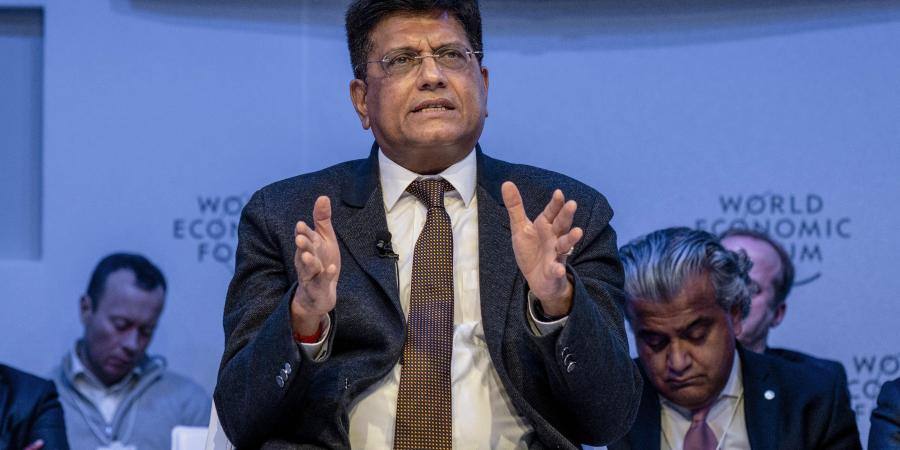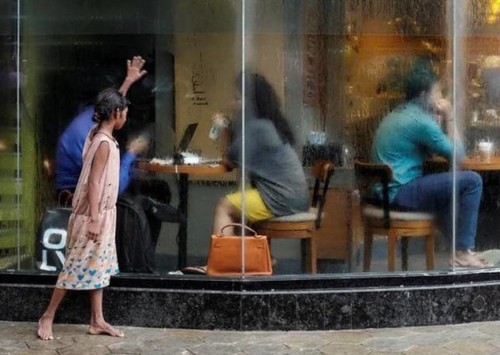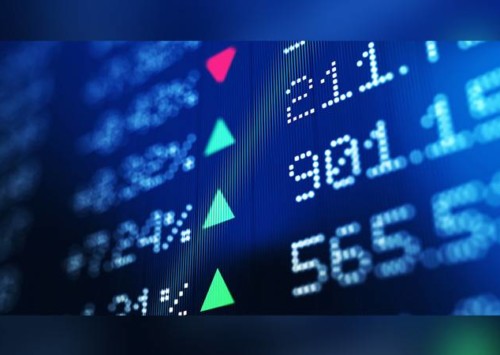India on the backfoot at WEF 2020 in Davos
At the recently concluded Annual Meeting of the World Economic Forum in Davos, the usual star of the show, India, was on the defensive, unlike the previous years and notably in 2018 when Prime Minister Narendra Modi gave the plenary speech, becoming the first Indian leader to deliver the inaugural keynote for the annual meet at Davos. Rather this year, Modi, though not on the scene, was at the receiving end of industrialists and economists who felt that the current government was giving more attention to nationalist policies instead of focusing on economic reforms.
At the beginning of each year, the World Economic Forum Annual Meeting convenes in Davos, a chic ski resort in Switzerland, and brings together world leaders to discuss global, regional and industry agendas. And every year India makes its strong presence felt at the forum and has the attention of global investors. The drill was somehow similar this year as well, at the 50th annual meeting of the World Economic Forum (WEF) held in Davos from January 20-24. Leaders, activists and politicians from all over the world gathered to discuss a ‘cohesive and sustainable world’. And India was the most talked subject this year as well, however, in an unflattering way.
A CEO survey by PwC, a consultancy, released last week at the World Economic Forum in Davos shows, pessimism is in the air when it comes to improvement in economic growth. Around 27 pc of the Indian CEOs believe that global economic growth will improve over the next 12 months, a sharp decline from 51 pc who had voted for an improvement in 2019. Similar is the case when the CEOs were asked about the prospects of revenue growth of their respective organisations over the next 12 months. Around 40 pc of the Indian CEOs were “very confident” about their 12-month revenue prospects, again lower than the 55 pc in 2019.
Around 51 pc of Indian CEOs said they are “extremely concerned” with uncertain economic growth, which they ranked as the biggest threat. Speed of technological change and over-regulation and policy uncertainty have been ranked as other major threats by them.
Fareed Zakaria, foreign affairs analyst, cautioned India against going down the path of protectionism, and said that the newly introduced protectionism will hurt its trajectory. In an interview with an Indian television, Zakaria emphasised that India cannot emulate the protectionist policies of the United States and China, and needs the foreign investment and competition.
“Two years ago, Modi came to Davos, and if you watch his speech, it was basically a critique of Donald Trump. It was saying too many nations are looking inward, globalisation is shrinking, in fact, we need more trade, more openness. Since then, India has become a world champion of protectionism,” Zakaria said.
He further added that India has the highest tariff barrier amongst the major countries in the world, stressing that India needs to remain open for its own good. “This is a very dangerous path for India to be on. United States, China can flirt with protectionism because they are much more open than the Indian economy. India needs openness, it needs foreign investment, it needs the competition to be able to really be world-class. If India starts closing itself off in a world that’s closing itself off, it’s not good for India,” he added. Zakaria argued that the open or liberal economic system introduced in Indian in early 1990s had helped India grow.
“For the first time, India received criticism on the World Economic Forum. Firstly, India has been criticised for its slowing growth statistics as presented by IMF. The IMF also blamed India for 80 pc downturn in global GDP. Further, India was criticised by Fareed Zakaria, a foreign affairs analyst, for its Protectionist policies. He stressed how India needs open itself to foreign investment. This point was also supported by UK India Business Council chief executive officer, Richard Heald, who encouraged investment in e-commerce sector,” Oishani Mukherjee, Global Transfer Pricing Intern, Deloitte, another consultancy, told Media India Group.
Hard hitting comments
Several world leaders and economists used the summit as a platform to describe how India’s perception around the globe has taken a hit since Prime Minister Narendra Modi prioritised Hindu nationalist policies. Hungarian-American financier and philanthropist George Soros accused the prime minister of ‘creating a Hindu nationalist state’ and alleged that Modi was ‘threatening’ to deprive millions of Muslims of their citizenship.
“Nationalism far from being reversed, made further headway. The biggest and most frightening setback came in India, where a democratically elected Narendra Modi is creating a Hindu nationalist state,” Soros said while speaking on the issue of growing nationalism in the world. His statements come at a time when Modi government has been facing backlash over the newly amended Citizenship Act. He also accused Modi of imposing “punitive measures on Kashmir, a semi-autonomous Muslim region.”
It was not just Soros who made a hard hitting statement against the country and its prime minister, but political scientist and founder of the Eurasia Group Ian Bremmer, also criticised the Narendra Modi government at the Forum saying that his focus was on Hindu nationalist policies rather than on economic reforms. Bremmer pointed out that Modi had moved away from his economic policies that had won him plaudits during his first term, and leaned into Hindu nationalism to get re-elected in an election where he wasn’t expected to secure a majority. “He’s done that with Kashmir and more recently done that with the issue of citizenship. And of course, anti-Muslim policies and orientations, particularly by his home minister.”
In their annual report of top risks for 2020, the Eurasia Group had listed Prime Minister Narendra Modi’s policies as the fifth biggest risk to the global economy. The report said that Modi’s ‘controversial social policies’ will lead to higher sectarian and religious conflict in the year and may also spill over to India’s foreign policies.
A wake up call from economists
The IMF lowered India’s economic growth estimate for the current fiscal to 4.8 pc. When asked about the slashed projections, Gita Gopinath, the chief economist at IMF said, “The first two-quarters of India came in weaker than we projected. One sector where we are seeing the most stress is the financial sector – the non-bank financial corporations. We have seen a sharp decline in credit growth and a weakened business sentiment. All this led to the revised numbers.”
Adair Turner, the chairman of the Institute of New Economic Thinking, said India needs to ‘wake up to the severity’ of the structural challenges posed by its growing working-age population. The crucial thing for India is to wake up to the severity of the challenge and not tell itself silly stories that it’s getting a major advantage from a demographic dividend, because actually, it is getting a major disadvantage.
Defending rather than promoting
The attendants from India at the Swiss ski resort town for the WEF 2020 summit were not just the 100 CEOs and Bollywood actress Deepika Padukone, but this time the forum saw the presence of some union ministers and chief ministers from India. Union commerce minister Piyush Goyal lead the Indian delegation along with Union Minister of State for Shipping and Chemical and Fertilizers, Mansukh L Mandaviya and chief ministers of Karnataka and Madhya Pradesh; finance minister of Punjab, and the IT Minister of Telangana. The ministry was there to hold bilateral meetings with CEO’s to attract global institution investments in India.
However, what it actually did was just defend the country. “India will play an important role in tackling the prevailing tensions in the world and India’s role would certainly be recognised at platforms like the World Economic Forum in Davos,” said Piyush Goyal at the summit.
Goyal further said that Narendra Modi’s personal popularity and personal acceptability across the world is huge and he has emerged as the leader whom all world leaders look up for respect for leadership for tackling the problems that the world faces.
“Whether it’s about climate change, fight against corruption and black money or issue of transparency in governance, the prime minister has put across his vision very effectively on various global platforms including G20 and the way the global powers have accepted that viewpoint, I’m confident that India’s growing position is being recognised,” he added.












